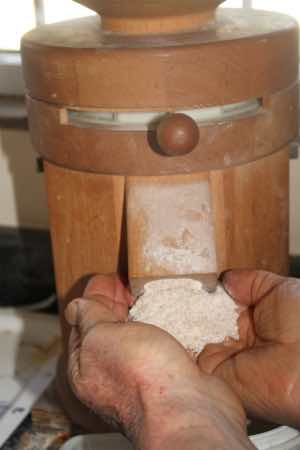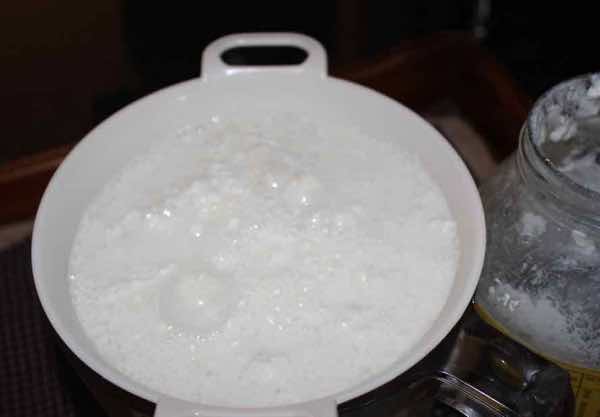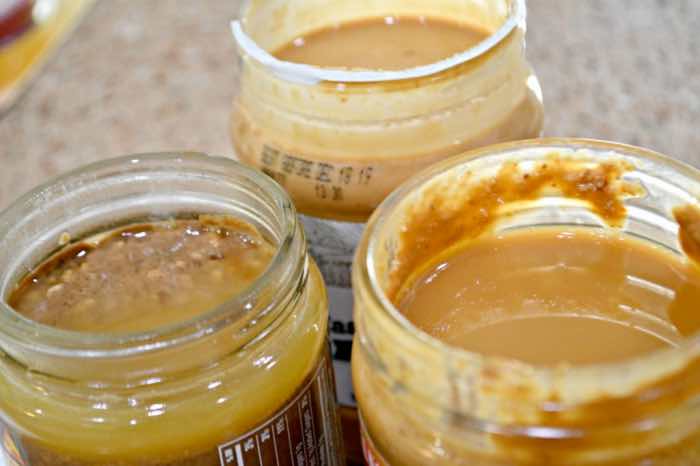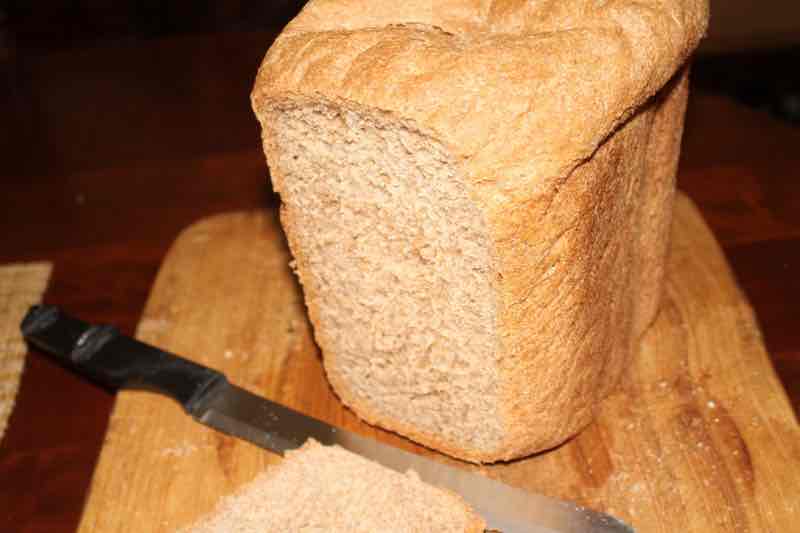Strict and lifelong gluten-free diet
A strict and lifelong gluten-free diet is the subject of a robust debate amongst scientists; there is no unanimity on the issues raised. It may not be necessary.
When scientists disagree on a subject, often vehemently, it simply means they are unsure and we need to avoid making dramatic lifestyle changes. Invariably it implies there are other factors at work which have not been taken into account.
There is an exact parallel with dairy products. Is butter indeed back? Should we be avoiding cheese? Is low-fat milk the solution to cholesterol? It all depends on what else you are eating.
Are there other strategies that could be followed instead of the very cumbersome lifelong avoidance of dairy and wheat products?

What is gluten?
Gluten is the protein in bread that gives the dough its elastic properties enabling it to balloon; by trapping the gas generated via the yeast[2]. The prevalence of an autoimmune allergic reaction called Coeliac Disease to the commercial loaf is rising in leaps and bounds; in addition to the diarrhoea, many others get abdominal discomfort and bloating.
The assumption is that gluten is to blame. The simple immunoglobulin blood test has high sensitivity and specificity; it's reliable. The prevalence of Coeliac Disease has doubled in the last 25 years[1]; 1 in every 60 children in Italy, for example.
The Catassi opinion
Professor Carlo Catassi is a very well-respected paediatrician in Italy. He has successfully campaigned for the screening of all children for Coeliac Disease. He argues that the silent, undiagnosed allergy could lead to serious issues such as infertility, anaemia and osteoporosis; neurological problems and even cancer.
The Sanders opinion
On the other hand Professor David Sanders in the UK takes a different line. Whilst acknowledging that two-thirds of cases are undiagnosed he has a deep concern that screening of all children would "turn healthy people into patients overly anxious about their food." The psychological implications are simply enormous.
Says he, "If their symptoms are so minimal then perhaps they don't need to know."
Only a predisposition
A positive "anti-tTG IgA" simply means that one has a predisposition for Coeliac Disease; not that you have the condition. Labeling an otherwise healthy child as sick on the basis of a screening test is ludicrous. It is only when other factors combine together that a person then becomes ill.
Lack of robust evidence
There is a complete lack of evidence that placing a healthy person on a gluten-free diet would improve their wellbeing and quality of life. In fact, quite the contrary is true.
Almost one-third of Americans say they would like to reduce or avoid gluten altogether[3]. The great concern is that most of them instead then go onto an ultra refined carb diet, lacking in fibre. These food plans are also deficient in many important minerals and vitamins that have been extracted; and certain key phytonutrients like lignans.
Why is transglutaminase so important?
Transglutaminase is a "naturally-occurring" enzyme which increases the cross linking between the gluten proteins in flour; it improves the structure of the dough. It is now routinely used by commercial bakers to increase the volume and texture of bread.
The great concern is that when food manufacturers take a "naturally-occurring" compound and modify it, everything changes; they turn it into an "ultra processed" item.
We see something similar with industrial pectin routinely added as fibre to many ultra-processed foods; it's quite different to that found "naturally" in an apple, for example.
Anti-tTG IgA test
Notice that this stands for anti-tissue "transglutaminase" immunoglobulin A.
There is a strong body of opinion that believes that it is the use of industrial transglutaminase in bread and many other foods that is making us so sensitive and allergic to gluten; and causing the number of positive tests to rise so dramatically.
The talk
My own particular concern is that all "the talk" is about lifelong gluten-avoidance, screenings and strict diets. There is not a word, for example about the fact that the sourdough method of baking bread for millennia predigests the protein in flour.
The protein in gluten is high in a unique amino acid called proline; enzymes in the gut may have difficulty digesting it, leaving short unbroken chains that provoke inflammatory reactions in the intestines. If absorbed through damaged "tight junctions," the whole body becomes angry.
Researchers have found that most of those with severe Coeliac Disease can enjoy bread baked with a very long sourdough pre-fermentation using certain flours.
 True wholemeal cannot be found on supermarket shelves
True wholemeal cannot be found on supermarket shelvesThe microbiome and gut inflammation
There is also very little in the "the talk" concerning gluten about the importance of the microbiome; that huge number of friendly bacteria, viruses and yeast cells that dwell in a healthy intestine.
There is a massive amount of research about how a depleted microbiome is a major cause of inflammation both in the gut and the body as a whole. But in relation to gluten-intolerance it is hardly mentioned.
A diet low in fibre affecting the microbiome is also one of the causes of the neurodegenerative diseases.
 It takes only five minutes to prepare kefir
It takes only five minutes to prepare kefirUltra-processed foods
The dramatic increase in those with a positive screening test exactly parallels the huge rise in ultra-processed meals found in grocery stores; especially baked goods.

A different strategy
 The sourdough starter
The sourdough starterA completely different approach to a strict and lifelong gluten-free diet might look like this.
- Start making and regularly consuming a probiotic in your own kitchen. Kefir is to my mind the simplest but those with severe issues should also be considering sauerkraut and others like kimchi. Supplements are not recommended as they swamp the gut with a very narrow spectrum of bacteria.
- Start baking your own bread according to the sourdough method. With a home appliance it takes only five minutes every morning to prepare the ingredients with zero industrial transglutaminase. One slice at a meal is sufficient.
- Slowly increase the fibre, particularly that in dark-green leafy vegetables and fruit to the recommended 30 to 40 grams per day; only 5% of those on typical grocery store food are getting the required dietary allowance.
- Purchase a mill for true wholegrain flour which is not commercially available anywhere.
 Sourdough loaf baked with 100% flour
Sourdough loaf baked with 100% flourGluten-free ultra processed foods are tasteless so large amounts of sugar and salt are added by commercial companies; the consequences for hypertension and stroke are frightening.
The material expressed on this page is gleaned from the nutritional and environmental literature; it is clearly referenced. A plain distinction is made between the author's opinion and that which is scientifically proven. When in doubt consult your health professional.
To suggest a correction or clarification, write to Dr Bernard Preston here. Contact.
Strict and lifelong gluten-free diet
A strict and lifelong gluten-free diet may not be necessary; but being forewarned does make some sense. Those with a positive "Anti-tTG IgA" test need to know about sourdough bread and the importance of the microbiome.
When browsing use right click and "Open Link in New Tab" or you may get a bad gateway signal.
Newsletter
Our newsletter is entitled "create a cyan zone" at your home, preserving both yourself and Mother Earth for future generations; and the family too, of course. We promise not to spam you with daily emails promoting various products. You may get an occasional nudge to buy one of my books.
Here are the back issues.
- Lifestyle and ideal body weight
- What are ultra-processed foods?
- Investing in long-term health
- Diseases from plastic exposure
- Intensive lifestyle management for obesity has limited value
- A world largely devoid of Parkinson's Disease
- The impact of friendly bacteria in the tum on the prevention of cancer
- There's a hole in the bucket
- Everyone is talking about weight loss drugs
- Pull the sweet tooth
- If you suffer from heartburn plant a susu
- Refined maize meal and stunting
- Should agriculture and industry get priority for water and electricity?
- Nature is calling
- Mill your own flour
- Bake your own sourdough bread
- Microplastics from our water
- Alternative types of water storage
- Wear your clothes out
- Comfort foods
- Create a bee-friendly environment
- Go to bed slightly hungry
- Keep bees
- Blue zone folk are religious
- Reduce plastic waste
- Family is important
- What can go in compost?
- Grow broad beans for longevity
- Harvest and store sunshine
- Blue zone exercise
- Harvest and store your rainwater
- Create a cyan zone at your home
Did you find this page interesting? How about forwarding it to a friendly book or food junkie? Better still, a social media tick would help.
Address:
56 Groenekloof Rd,
Hilton, KZN
South Africa
Website:
https://www.bernard-preston.com